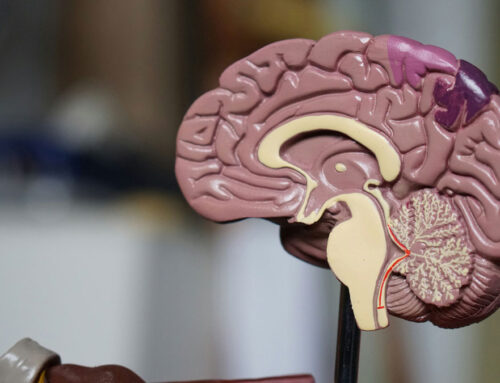With rising trends in meat-free diets and the growing diversity of dietary choices, the pescatarian diet has been gaining momentum.
This diet prioritizes foods that provide an abundance of health-boosting omega-3 fatty acids and essential vitamins and minerals that all work in harmony to protect your heart, reduce inflammation, assist with healthy weight management, and even boost brainpower.
So, should you say ‘yes’ to a pescatarian diet? If you’re looking for a flexible, nutritious and sustainable approach to eating, it might be worth considering.
What is a pescatarian diet?
A pescatarian diet is a plant-forward approach to eating that also includes seafood as a major source of protein. Additionally, some pescatarians eat eggs and dairy products. This diet is often referred to as “pesco-vegetarian“, and falls within the vegetarianism spectrum.
Pescatarianism can vary from person to person, making it a really personalized dietary journey. To better understand the pescatarian diet, let’s explore what foods are included and excluded.
Foods included in a pescatarian diet:
- Fish (e.g., salmon, tuna, tilapia and cod)
- Shellfish (e.g. shrimp, lobster, mussels and oysters)
- Fruits and vegetables
- Legumes and beans
- Whole grains (e.g., quinoa, brown rice, and oats)
- Nuts and seeds
- Tofu
- Tempeh
- Dairy products (optional)
- Eggs (optional)
Food excluded from a pescatarian diet:
- Red meat (beef, pork, lamb)
- Poultry (chicken, turkey)
- Game meat (bison, rabbit)
- Processed meats (bacon, sausages)
- Other animal byproducts (gelatin, lard)
Nutritional benefits of a pescatarian diet
The pescatarian diet offers a wide range of nutritional benefits, with a particular focus on omega-3 fatty acids. Here are some key advantages:
Heart health
Omega-3 fatty acids may be one of the first nutrients we think of when it comes to supporting cardiovascular health. They’re found abundantly in fatty fish like salmon and mackerel and have been linked to reduced risk factors for heart disease. Because of its ability to lower triglyceride levels, pescatarians can benefit from lower blood pressure and improved cholesterol levels.
Improved insulin sensitivity for diabetics
Omega-3s have been shown to play a vital role in improving insulin sensitivity and reducing inflammation, making them beneficial for those with diabetes. Did you know that a continuous state of inflammation makes our bodies less responsive to the effects of insulin? The omega-3 fats found in fish have powerful anti-inflammatory effects, especially when combined with a plant-based diet. One study found that people following a pescatarian diet had the highest flavonoid intake of all those taking part. This was largely due to the phenolic structures found in fruits, vegetables, grains, roots and flowers that tend to extend the anti-inflammatory and antioxidant benefits of a fish-based diet.
Healthy weight management
Inflammation isn’t just the culprit behind various chronic diseases, it’s also linked to unwanted weight gain. Omega-3 fatty acids, with their powerful, anti-inflammatory properties can help alleviate this issue, making healthy weight management easier. Fish provides an excellent source of polyunsaturated fats, so when it comes to fats, it’s time to embrace the healthy ones. These healthy fats not only offer sustained energy, but also contribute to your overall well-being, paving the way to a balanced and vibrant life.
Boosts brain function
The minerals and vitamins in fish are like a superhero squad for your brain. Omega-3s have the incredible ability to protect your brain cells and enhance memory. They also play a pivotal role in reducing inflammation throughout your body, which is crucial because inflammation can be a real villain when it comes to brain health. Studies have shown that people who eat fish-based diets have slower rates of mental decline. Some research has even linked pescatarian diets to lower risks of dementia and Alzheimer’s.
A nutrient-rich multivitamin source
By embracing the plant-based side of pescatarianism, your body is nourished with loads of vitamins, minerals and key nutrients. For instance, plant-based foods are a treasure trove of dietary fibre, which plays a pivotal role in digestive health, weight management, and blood sugar regulation. Vegetables, fruits, whole grains, and nuts are all fibre-rich champions, which when combined with lean seafood protein, puts you on track to satiety and long-term vitality.
The plant kingdom also offers an array of vitamins, including vitamin C from citrus fruits, bell peppers, and strawberries – promoting immune function and skin health. Additionally, vitamin A, courtesy of sweet potatoes, carrots, and spinach, is a vital player in vision, immune support, and skin radiance. And let’s not forget to eat our greens! Leafy greens like kale and spinach are generous contributors of vitamin K, which is essential for blood clotting and bone strength.
So, when you dig into a pescatarian diet, you’re not just having a meal; you’re boosting your body with a powerhouse of nutrients.
Optimizing nutrient intake for pescatarians and vegetarians
When we cut certain foods out, nutrient deficiencies become more likely. Here are a couple of common nutrient deficiencies you may encounter on a pescatarian diet:
Calcium
This mineral isn’t just about keeping your bones and teeth strong, it’s also the conductor behind your muscle function and nerve signals. While dairy products are the superstar calcium source for many, some pescatarians might choose to exclude them. So, the quest begins – pescatarians need to uncover alternative sources of calcium to keep their bodies in perfect rhythm.
Here are a few plant-based foods that can provide calcium:
- Fortified plant milks
- Tofu
- Leafy greens (e.g., kale, broccoli)
- Almonds
Vitamin B12
 Responsible for red blood cell production, fine-tuning nerve function and facilitating DNA synthesis, this essential nutrient is typically found in animal-derived foods such as beef, dairy and organ meats. Therefore, pescatarians and vegetarians need to pay special attention to their B12 intake.
Responsible for red blood cell production, fine-tuning nerve function and facilitating DNA synthesis, this essential nutrient is typically found in animal-derived foods such as beef, dairy and organ meats. Therefore, pescatarians and vegetarians need to pay special attention to their B12 intake.
Here a few ways to make sure you’re getting enough B12:
- Incorporate fortified plant-based foods into your diet, such as chia seeds
- Opt for fortified plant-based milk alternatives
- Choose whole grain breakfast cereals, and nutritional yeast products that are fortified with vitamin B12
- Introduce supplements: if you find it difficult to meet your B12 quota, consider natural B12 supplements like the CanPrev B12 Methyl Drops for an added boost
Iron
Iron deficiency anemia occurs when our blood doesn’t have enough iron to make hemoglobin – the part of red blood cells that bind and carry oxygen to the blood. Iron deficiencies can be a concern for pescatarians and vegetarians, if their diets lack heme iron, which is predominantly found in animal products and is more readily absorbed by the body. Non-heme iron, found in plant-based foods such as beans, lentils, and leafy greens, is less efficiently absorbed. To safeguard against iron deficiency, pescatarians can boost their iron levels by welcoming iron-rich plant foods into their diets. Pairing these with vitamin C-rich foods can work wonders, as vitamin C enhances the absorption of non-heme iron. So, it’s a win-win for your iron levels!
Here are some meat-free options to up your iron intake:
- Whole wheat breads
- Cereals, pastas, quinoa and oatmeal
- Avocado
- Cooked spinach, asparagus and green beans
- Baked potato
- Nuts
- Beans, legumes, soybeans and lentils
- Tofu
- Dried apricots, raisins and dates
- Natural iron supplements such as CanPrev’s Iron Bis-Glycinate 25
Pescatarian diet planning for beginners
If you’re considering adopting a pescatarian diet, here are some tips to get you started:
Take it slow: Transitioning to a new diet can be overwhelming. Start by gradually incorporating more pescatarian-friendly meals into your routine and reducing meat consumption. Consider designating specific days of the week for pescatarian meals and gradually ease your way towards cutting out meat completely.
Balanced nutrition: A well-rounded pescatarian diet is the goal to healthy living. Ensure your diet includes a variety of colorful vegetables, whole grains, healthy fats (e.g., avocado, olive oil), and high-quality protein sources like fish, legumes, and tofu.
Meal prep: Simplify your pescatarian journey by planning your meals in advance. Preparing pescatarian dishes and snacks ahead of time can help you stay on track and make healthier choices.
Listen to your body: As you embark on your pescatarian journey, listen to your body’s cues. Pay attention to how different foods make you feel and adjust your choices accordingly. Everyone’s nutritional needs are unique, so listen to your body’s signals and adapt your diet to align with your well-being.
One of the major benefits of a pescatarian diet lies in its potential to be kinder to our environment compared to diets that rely heavily on land-based meats. In essence, the way we eat directly impacts the climate crisis.
By making responsible choices in seafood selection, such as opting for abundant species and avoiding overfished populations, we can do our part towards marine ecosystem preservation.
So, if you’re considering a diet change that offers a tasty and balanced way to nourish your body, you might be ready to say ‘yes’ to a pescatarian diet.
Sources:
Pescatarian Diet 101: Pros, Cons And What You Can Eat
Comparison of Nutritional Quality of the Vegan, Vegetarian, Semi-Vegetarian, Pesco-Vegetarian and Omnivorous Diet
How to lower your triglycerides
Comparison of polyphenol intakes according to distinct dietary patterns and food sources in the Adventist Health Study-2 cohort
Flavonoids: an overview
Omega-3-6-9 Fatty Acids: A Complete Overview
Fish consumption and cognitive decline with age in a large community study
What are proteins and what do they do?
Research Progress on Nutritional Value, Preservation and Processing of Fish—A Review
Ways to boost blood iron levels while eating a vegan or vegetarian diet
Study links eating fish with healthier brains, regardless of mercury







Leave A Comment